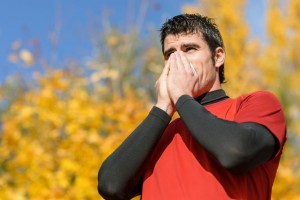 An asthma attack can be fatal. Many people who have asthma do not find out until they have their first attack. According to the Asthma and Allergy Foundation of America, and average of nine people die from asthma every day in the U.S. Fall hosts many triggers for asthma attacks for both adults and children. Kids are exposed to additional triggers at school, including the viruses they often pick up from other students, stress, and allergens that would normally be controlled at home.
An asthma attack can be fatal. Many people who have asthma do not find out until they have their first attack. According to the Asthma and Allergy Foundation of America, and average of nine people die from asthma every day in the U.S. Fall hosts many triggers for asthma attacks for both adults and children. Kids are exposed to additional triggers at school, including the viruses they often pick up from other students, stress, and allergens that would normally be controlled at home.
Asthma Attack Symptoms
Mild asthma attack symptoms include:
- Some coughing
- Mild wheezing
- Some shortness of breath
Moderate asthma attack symptoms include:
- Moderate to loud wheezing
- Continual coughing
- Obvious shortness of breath
- Can only speak in short phrases between breaths
Severe asthma attack symptoms include:
- Wheezing may have quieted
- Can only speak a few words at a time
- Extreme difficulty breathing
- Pale skin
- Blue lips and/or fingernails
- Sweating
- Sucking in of throat and rib muscles
- Distressed and anxious
A moderate to severe asthma attack is a medical emergency, and you should seek emergency medical care.
Asthma Symptoms
If you know you have asthma, you can take steps to prevent attacks and have the proper medication, such as an emergency inhaler) on hand to stop an attack when it occurs. Some people with asthma take medication continually to prevent attacks, while others can control their asthma by minimizing triggers.
Common symptoms of asthma include:
- Frequent nonproductive coughing, with or without wheezing
- Night cough
- Frequent sighing
- Decreased lung capacity
- Rapid breathing
- Fatigue
- Irritability
- Difficulty concentrating
- Nasal congestion
- Runny nose
- Sneezing
- Sore throat
- Headaches
- Anxiety
- Difficulty sleeping
- Shortness of breath or becoming short of breath easily
- Extreme fatigue or weakness when exercising
- Coughing or wheezing after exercise
- Inability to exercise















